War Heroes: Propaganda Soldiers
by David Luttrell
The soldier sat in the mud listening to the Germans on the other side of the hedge, as he prepared to make his move that would propel him into history and dub him with the name “hero”. The word hero is a term that grabs the Imagination for each person in a different way, for me it draws me to follow my knowledge and think of historical figures such as Alexander the Great or maybe Ivanhoe. As for the twentieth century we are hard pressed to place anyone in that category because we are bombarded with images of frauds, fakes, and propaganda puppets.

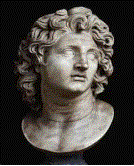
The intent of a hero is to give the people a person that they can relate to doing extraordinary actions for the service of their country. The secondary benefit of this is that the government then has itself a poster boy for recruitment and justification of military actions in areas that might have otherwise been frowned upon or even protested against by the public. Third this also gives the government someone to blame for the horrible actions that inevitably follow protracted warfare, such as violence against innocent civilians and private property.
Alvin York was the third son of eleven children from a poor tenant farmer in Pall Mall, Tennessee. Alvin was known for being a rowdy drunkard that had turned to religion prior to the outbreak of WWI. Upon being drafted he revealed his unwillingness to fight due to religious conviction. It was only after a theological discussion that York was convinced by his superior officer that was not only ok to fight the Germans but that it was a moral imperative to defeat them for God and country.
Alvin went on to fight in the war he received the Medal of Honor for leading an attack on a German machine gun nest, taking 32 machine guns, killing 28 German soldiers and capturing 132 others. Within a short amount of time the fact that he had other soldiers working with him had been almost completely forgotten and York was given almost singlehanded hero standing, receiving the Congressional Medal of Honor, along with several other awards from Allied countries placed him into the category of being the most decorated soldier in U.S. history. Soon after this Alvin was returned to America to face the lime light, as America was caught in a frenzy of patriotism upon the arrival of their new hero. For several weeks Alvin was on parade around the country being displayed for all to see the great hero, but this bothered Alvin because he was being hit with hundreds of requests for him to promote one company or another. Finally Alvin denounced them all and only promoted his own causes such as rural education programs and farm reform programs.” The modest giant who had been petted by New York and feted at the nation’s capital yet was unspoiled, and who had received offers of small fortunes to write for the papers and appear on the stage, could think only of home and what it meant to him…” (NY, Times.)
on a German machine gun nest, taking 32 machine guns, killing 28 German soldiers and capturing 132 others. Within a short amount of time the fact that he had other soldiers working with him had been almost completely forgotten and York was given almost singlehanded hero standing, receiving the Congressional Medal of Honor, along with several other awards from Allied countries placed him into the category of being the most decorated soldier in U.S. history. Soon after this Alvin was returned to America to face the lime light, as America was caught in a frenzy of patriotism upon the arrival of their new hero. For several weeks Alvin was on parade around the country being displayed for all to see the great hero, but this bothered Alvin because he was being hit with hundreds of requests for him to promote one company or another. Finally Alvin denounced them all and only promoted his own causes such as rural education programs and farm reform programs.” The modest giant who had been petted by New York and feted at the nation’s capital yet was unspoiled, and who had received offers of small fortunes to write for the papers and appear on the stage, could think only of home and what it meant to him…” (NY, Times.)
Alvin was the first larger than life hero in the 20th century, but he had said on several occasions that he would rather live unknown than be a hero knowing that he had to kill to get there. The war exposed York to the modern world that had become a modern mechanized society with a level of education that was unknown in the little community that he came from. Being observant to the advances and benefits of education, York dedicated much of the remainder of his life working to improve rural Tennessee education, unlike heroes of the past York wasn’t after personal glory he was dedicated to helping those less fortunate.
By the time WWII rolled into Europe York's image on the silver screen made fighting for freedom a national effort with Hollywood stars such as Gary Cooper, John Wayne, and others making heavily propaganda based movies such as Sgt. York, Sands of Iwo Jima, and the Rough Necks, it’s no wonder it lead to an exodus of young men fed on these images telling them that this was the right thing to do.
This war had its heroes as well, The most well-known being Audie Murphy, coming from a west Texas cattle ranch Audie had a typical Southern Baptist upbringing that gave him the honest foundation he was known for. After distinguishing himself in several battles in which he was wounded in several. Audie Murphy received several field promotions as well as thirty three US medals, plus five medals from France and one from Belgium. It has been said that he received every US medal available at the time; five of them awarded more than once.
Unlike York, Murphy was made a liaison officer and was immediately recruited to Hollywood to become a star. He was in forty-four films and even had some success as a recording artist. He stared in the movie made from his biography called “To Hell and Back” in which his larger than life actions were displayed even larger to promote enlistment and again to create the sense of purpose.
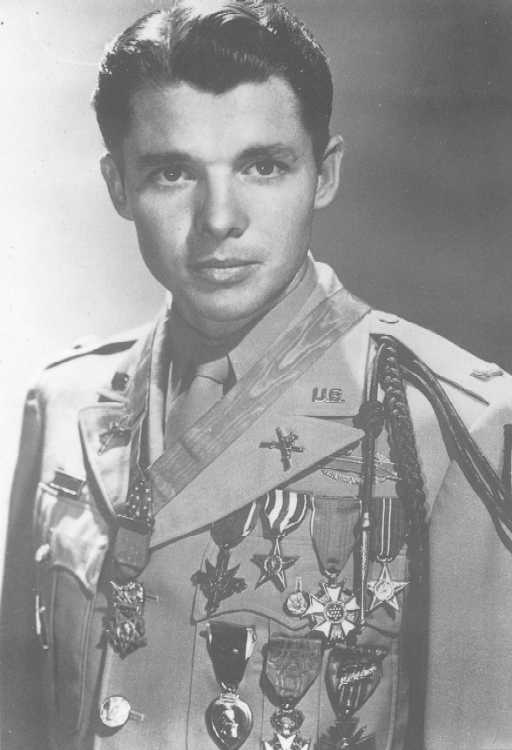
Always a proponent for veteran rights, he dedicated much of his time when not making movies to promote educating about mental illness and PTSD with post war veterans at a time when it was taboo to talk about it. Audie wasn’t the first self-promoting soldier but he was one of the first to have acknowledged that he suffered from these conditions, thus giving people a reason to focus on these issues and asking what is this and why is it happening as well as what can we do to prevent it from happening again.
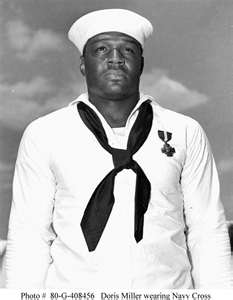 Another Hero though little known, is Doris ”Dorie” Miller who served in the Navy during WWII as a mess hall attendant but upon the morning of December 7, 1941 Dorie found himself at the controls of an anti-aircraft weapon fighting for his and the lives of the men he served with in the battle of Pearl Harbor. Saving several sailors as well as being accredited for taking down at least one Japanese aircraft. If Dorie had been white he arguably would have received the Congressional Medal of Honor, none the less he received the Navy Cross and was eligible for several other awards. During his brief return to the states while waiting his next and ultimately final deployment Dorie went on a brief tour of black communities to promote the enlistment of black youth during the war, with unspoken promises of respect and equality that would echo in the minds of black soldiers for decades.
Another Hero though little known, is Doris ”Dorie” Miller who served in the Navy during WWII as a mess hall attendant but upon the morning of December 7, 1941 Dorie found himself at the controls of an anti-aircraft weapon fighting for his and the lives of the men he served with in the battle of Pearl Harbor. Saving several sailors as well as being accredited for taking down at least one Japanese aircraft. If Dorie had been white he arguably would have received the Congressional Medal of Honor, none the less he received the Navy Cross and was eligible for several other awards. During his brief return to the states while waiting his next and ultimately final deployment Dorie went on a brief tour of black communities to promote the enlistment of black youth during the war, with unspoken promises of respect and equality that would echo in the minds of black soldiers for decades.
This awakening of American Youth both white and black as to the use of individual acts of heroism as justification continued into the next generation as we approached future conflicts the
 reflective look back at American Warfare continued to refine as attitudes changed and the younger generation gained in education, the acceptance of warfare waned. As Korea was ignored, even though more American Soldiers died there than WWI and WWII the Vietnam conflict proceeded to become the most exposed war America never fought, America was hard pressed to accept anything less than the communist takeover of a poor remote country to galvanize the populace to agree to another conflict. The problem was that they didn’t have a hero so Hollywood made one up and John Wayne was happy to fill the shoes for it, in the movie The Green Beret in which he portrayed an American Officer, put into the position of defending a remote location against overwhelming odds. This wasn’t much of a reach for him considering that it was not much different than one of his earlier movies “the Alamo” in which some of America’s most celebrated heroes of the 19th century were in the same position out gunned outnumbered and full of piss and vinegar, thus taking the theme of “Remember the Alamo” it is easy to see the plot to influence the American public to accept U.S. military actions.
reflective look back at American Warfare continued to refine as attitudes changed and the younger generation gained in education, the acceptance of warfare waned. As Korea was ignored, even though more American Soldiers died there than WWI and WWII the Vietnam conflict proceeded to become the most exposed war America never fought, America was hard pressed to accept anything less than the communist takeover of a poor remote country to galvanize the populace to agree to another conflict. The problem was that they didn’t have a hero so Hollywood made one up and John Wayne was happy to fill the shoes for it, in the movie The Green Beret in which he portrayed an American Officer, put into the position of defending a remote location against overwhelming odds. This wasn’t much of a reach for him considering that it was not much different than one of his earlier movies “the Alamo” in which some of America’s most celebrated heroes of the 19th century were in the same position out gunned outnumbered and full of piss and vinegar, thus taking the theme of “Remember the Alamo” it is easy to see the plot to influence the American public to accept U.S. military actions.
Vietnam wasn’t without its heroes in fact Medal of Honor recipient Peter Lemon said in his autobiography” beyond the medal” “"It isn't mine, "It belongs to Casey Waller, Nathan Mann, Brent Street, and the guys in the unit."(Lemon, p.36) Peter was unwilling to accept any awards knowing that any awards given were just another propaganda moment for the military, another attempt at justifying military conflict.
The use of soldiers to justify or even promote warfare continued as the Vietnam conflict started to heat up. In 1966 Dieter Dengler was shot down in Laos, after six months in a Vietnamese prison camp he along with several others, including Chinese and Laotian escaped to return to his ship in the Gulf of Tonkin. Dieter immediately went on tour around the U.S. with a prewritten script he went from town hall meetings to grade school visits promoting the U.S. military, enlistment, and the typical anti –communist rhetoric.
His moment in the limelight was short lived compared to some due to the fact that as the war continued to worsen the attitudes of American youth was increasing in hostility and open rebellion. Along with the race riots happening in several locations around the country, the peace movement was gaining steam as casualties increased so did the rate of young men acknowledging the draft but refusing to serve, the draft continued as protests in places like Berkley college and Kent State turned from peaceful protests to violent assaults on civilians by the National Guard.

Since then during the 70’s and early 80’s the U.S. had refrained from publicizing heroes trying to keep its military actions under the radar of the common man with little skirmishes around the world such as Grenada, Panama, Somalia, and Bosnia (where it took the U.S. military nine weeks to get twelve helicopters flight ready), It wasn’t until the Middle east conflicts that we started to see a return to the equation that war + hero equals public support and justification for the invasion of middle eastern countries such as Iraq twice and Afghanistan.
The first attempt of incursion into Iraq was under the premise of helping a less powerful nation namely Kuwait by defending them from an invading force from Iraq. This conflict only lasted around 5 months and no individuals stand out as “heroes”, but this did set the stage for the U.S. positioning itself to be the world’s police force interfering in almost every little conflict that arises. As the terrorist Attacks on 9/11 gave justification to the invasion of Afghanistan, in search of terrorists the need for Heroes became evident to those in charge.
In 2010 Staff Sgt Salvatore Guinta was the first living soldier to receive the Congressional Medal of Honor for his actions in Afghanistan. Guinta was quoted as saying to ABC news:
“There are American soldiers in Afghanistan who are constantly "destroying the enemy with immense bravery." He adds that "every single one of them has gone above and beyond anything that should ever be asked of them and they're continuing to do it. They're doing it today. They'll do it tomorrow. They'll do it again."(Martinez, p.1) This is best answered in the Washington post with the Washington post with

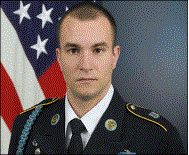 “The presentation of the Medal of Honor to a living soldier for heroism in Afghanistan would be an important moment for Obama, who has struggled to build public support for the war there. Even as the number of U.S. troops in Afghanistan has soared to 100,000, Americans are increasingly pessimistic”. (Whitlock, p.2)
“The presentation of the Medal of Honor to a living soldier for heroism in Afghanistan would be an important moment for Obama, who has struggled to build public support for the war there. Even as the number of U.S. troops in Afghanistan has soared to 100,000, Americans are increasingly pessimistic”. (Whitlock, p.2)
The Term “the World needs a hero” has been used throughout time to emphasize the need for a government to have support from the public. This demand for public approval has grown as education spreads around the world. Education gives the lesser man an advantage in making the decision as to whether or not to support his government’s actions.
In the current state of affairs America is currently involved in warfare for the “freedom of Afghanistan” and as it stands there isn’t an end in sight for this conflict, and America is in repair mode, for its need for justification when recently President Obama Awarded Staff Sgt. Salvatore Guinta the Medal of Honor for his actions in Afghanistan. Salvatore is the first recipient of the M.o.H. since WWII to receive it while still alive. Within days of receiving it went on a nationwide tour to promote military enlistment and to persuade the nation that being in Afghanistan is justified. This is only the latest in a long line of soldiers serving their country, defending the government agenda set before them as defending freedom, and the American way
I’m talking about this part of the subject last because it probably the most underrated and unsung of all the heroic stories told. Unlike any of these American Heroes, arguably the most under looked members of 
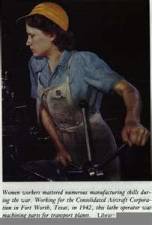 this group is the Women of America who could be defined as Heroes every much as any soldier in the field. I’m talking about the mothers, aunts, and sisters that volunteered their so called free time to do things such as volunteering in V.A. hospitals, NCO clubs, and helping out at the church bake sales, this along with maintaining homes, children, and Dinner on the table by five, along with that women were working across America not only as waitresses and secretaries but as welders, riveters, and truck drivers along with serving as
this group is the Women of America who could be defined as Heroes every much as any soldier in the field. I’m talking about the mothers, aunts, and sisters that volunteered their so called free time to do things such as volunteering in V.A. hospitals, NCO clubs, and helping out at the church bake sales, this along with maintaining homes, children, and Dinner on the table by five, along with that women were working across America not only as waitresses and secretaries but as welders, riveters, and truck drivers along with serving as
volunteer nurses during both WWI and WWII working while being bombed by both sides. They were also in the colleges getting educations although limited by male dominated systems. The seeds were planted for the growth of heroines of a different nature As America matured modern women of America were not immune to the propaganda that were used to draw in recruits with legends of Florence Nightingale leading the way for thousands of women who joined the military with the single intent of saving soldiers’ lives, many of them selflessly giving their all to protect men they would never know beyond a name tag and a wound. 
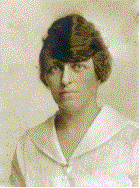
Emma Elizabeth Weaver was a nurse during WWI in which she served in several countries giving aid to thousands of soldiers.
It was a harassing sight, ruin & destruction everywhere. It was very dangerous for so many unexploded shells lay about. (2 sailor boys had been killed the previous day by unexploded shells) Machine guns & machine gun bullets & hand grenades lay everywhere. A pair of boots lay on the ground. I stooped to see to what country they belonged, but, I could not turn them over the feet were still within them & steel helmets lay strewn about, Oh, the horrible war with its carnage & bloodshed. (Weaver Diary Jan, 1919)
Women were facing the same horrors with many more limitations then men had, yet received little acclaim for their efforts beyond being used for recruitment posters, moral pin-up pictures, and propaganda images promoting national patriotism. I know that this sounds repetitive but the examples are clear that the 20th century has taken the Idea of Propaganda and ran with it in a direction that even Alexander the Great would have been jealous of. As he was prone to promoting his own glory, Alexander would have marveled at the concept of using a common man or woman to move the populace to his ends.
The power of the people is truly shown in this, but it also shows that as a whole people can and will be convinced to do or allow actions to happen as it is only a matter of convincing them that the said actions are for their own good or for the betterment of the world around them. Before I began this class I had little understanding as to what propaganda was and what affect it had in my life. As we are bombarded with images every day that are designed to influence us to believe in what other people do. The question is do we continue to buy into the ideas put before that what the government is for the people, by the people, and is designed to protect our rights? Or do we examine what they say with a critical lens that exposes the truth to everyone, thus giving everyone an honest chance at making logical choices for themselves as the way in which our government handles itself and as to how, why, and if weather or not to be a part of it.
Bibliography
(1) Ann, Susan. Why America fights: patriotism and war propaganda from the Philippines to Iraq. Oxford University Press, USA, 2009. Print.
(2) T., Ronald. Double Victory: A Multicultural History of America in World War II. Back Bay Books, 2001. Print. (3)Harris, David. Our war: what we did in Vietnam and what it did to us. Crown, 1996. Print.
(4)E., Michael. Celluloid soldiers: the Warner Bros. campaign against Nazism. NYU Press, 1999. Print.
(5) McCarthy, Todd. Howard Hawks: The Grey Fox of Hollywood. Grove Pr, 2000. Print.
(6)Whiting, Charles. American Hero. the Life and Death of Audie Murphy. J Whiting Books, 2000. Print.
(7)Andersen, Robin. A century of media, a century of war. Peter Lang Pub Inc, 2006. Print.
(8). Smith, Craig S. "Revisiting Sgt. York and a Time When Heroes Stood Tall." Times [New York] June 2006. Print.
(9) Lemon, Peter C. Beyond the Medal: a Journey from Their Hearts to Yours. Golden, CO: Fulcrum Pub., 1997. Print.
(10) life magazine article on Au
(11) Martinez, Luis. "Exclusive: Medal of Honor Recipient Salvatore Giunta Tells His Story - ABC News." ABCNews.com: Breaking News, Politics, World News, Good Morning America, Exclusive Interviews - ABC News. Web. 23 Feb. 2011. <http://abcnews.go.com/Politics/abc-interviews-medal-honor-recipient/story?id=11625753&page=1>.
(12) Whitlock, Craig. "Obama Awards Living Soldier Salvatore Giunta the Medal of Honor." Washington Post - Politics, National, World & D.C. Area News and Headlines - Washingtonpost.com. Web. 23 Feb. 2011. <http://www.washingtonpost.com/wp-dyn/content/article/2010/09/10/AR2010091002712.html>.
(13)Weaver, Emma E. "Emma Elizabeth Weaver Diary." Women In Military Service For America Memorial. 1997. Web. 02 Mar. 2011. <http://www.womensmemorial.org/H&C/Exhibits/exhibitshl.html>.
All photos were taken from google images.


 Another Hero though little known, is Doris ”Dorie” Miller who served in the Navy during WWII as a mess hall attendant but upon the morning of December 7, 1941 Dorie found himself at the controls of an anti-aircraft weapon fighting for his and the lives of the men he served with in the battle of Pearl Harbor. Saving several sailors as well as being accredited for taking down at least one Japanese aircraft. If Dorie had been white he arguably would have received the Congressional Medal of Honor, none the less he received the Navy Cross and was eligible for several other awards. During his brief return to the states while waiting his next and ultimately final deployment Dorie went on a brief tour of black communities to promote the enlistment of black youth during the war, with unspoken promises of respect and equality that would echo in the minds of black soldiers for decades.
Another Hero though little known, is Doris ”Dorie” Miller who served in the Navy during WWII as a mess hall attendant but upon the morning of December 7, 1941 Dorie found himself at the controls of an anti-aircraft weapon fighting for his and the lives of the men he served with in the battle of Pearl Harbor. Saving several sailors as well as being accredited for taking down at least one Japanese aircraft. If Dorie had been white he arguably would have received the Congressional Medal of Honor, none the less he received the Navy Cross and was eligible for several other awards. During his brief return to the states while waiting his next and ultimately final deployment Dorie went on a brief tour of black communities to promote the enlistment of black youth during the war, with unspoken promises of respect and equality that would echo in the minds of black soldiers for decades.  reflective look back at American Warfare continued to refine as attitudes changed and the younger generation gained in education, the acceptance of warfare waned. As Korea was ignored, even though more American Soldiers died there than WWI and WWII the Vietnam conflict proceeded to become the most exposed war America never fought, America was hard pressed to accept anything less than the communist takeover of a poor remote country to galvanize the populace to agree to another conflict. The problem was that they didn’t have a hero so Hollywood made one up and John Wayne was happy to fill the shoes for it, in the movie The Green Beret in which he portrayed an American Officer, put into the position of defending a remote location against overwhelming odds. This wasn’t much of a reach for him considering that it was not much different than one of his earlier movies “the Alamo” in which some of America’s most celebrated heroes of the 19th century were in the same position out gunned outnumbered and full of piss and vinegar, thus taking the theme of “Remember the Alamo” it is easy to see the plot to influence the American public to accept U.S. military actions.
reflective look back at American Warfare continued to refine as attitudes changed and the younger generation gained in education, the acceptance of warfare waned. As Korea was ignored, even though more American Soldiers died there than WWI and WWII the Vietnam conflict proceeded to become the most exposed war America never fought, America was hard pressed to accept anything less than the communist takeover of a poor remote country to galvanize the populace to agree to another conflict. The problem was that they didn’t have a hero so Hollywood made one up and John Wayne was happy to fill the shoes for it, in the movie The Green Beret in which he portrayed an American Officer, put into the position of defending a remote location against overwhelming odds. This wasn’t much of a reach for him considering that it was not much different than one of his earlier movies “the Alamo” in which some of America’s most celebrated heroes of the 19th century were in the same position out gunned outnumbered and full of piss and vinegar, thus taking the theme of “Remember the Alamo” it is easy to see the plot to influence the American public to accept U.S. military actions.
 “The presentation of the Medal of Honor to a living soldier for heroism in Afghanistan would be an important moment for Obama, who has struggled to build public support for the war there. Even as the number of U.S. troops in Afghanistan has soared to 100,000, Americans are increasingly pessimistic”. (Whitlock, p.2)
“The presentation of the Medal of Honor to a living soldier for heroism in Afghanistan would be an important moment for Obama, who has struggled to build public support for the war there. Even as the number of U.S. troops in Afghanistan has soared to 100,000, Americans are increasingly pessimistic”. (Whitlock, p.2)  this group is the Women of America who could be defined as Heroes every much as any soldier in the field. I’m talking about the mothers, aunts, and sisters that volunteered their so called free time to do things such as volunteering in V.A. hospitals, NCO clubs, and helping out at the church bake sales, this along with maintaining homes, children, and Dinner on the table by five, along with that women were working across America not only as waitresses and secretaries but as welders, riveters, and truck drivers along with serving as
this group is the Women of America who could be defined as Heroes every much as any soldier in the field. I’m talking about the mothers, aunts, and sisters that volunteered their so called free time to do things such as volunteering in V.A. hospitals, NCO clubs, and helping out at the church bake sales, this along with maintaining homes, children, and Dinner on the table by five, along with that women were working across America not only as waitresses and secretaries but as welders, riveters, and truck drivers along with serving as
